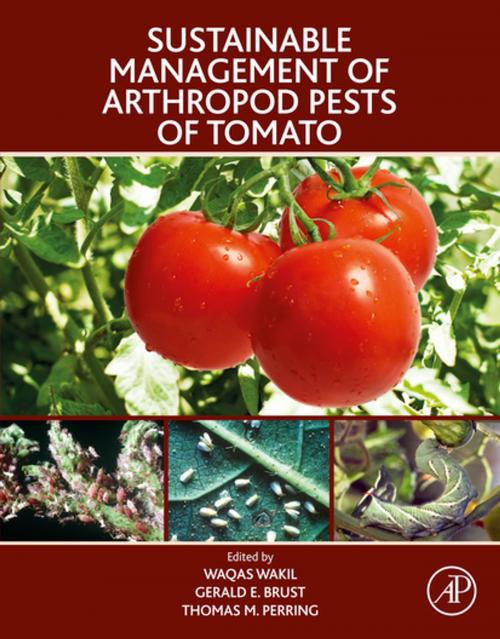Sustainable Management of Arthropod Pests of Tomato
Nonfiction, Science & Nature, Science, Biological Sciences, Entomology, Technology, Engineering| Author: | ISBN: | 9780128135082 | |
| Publisher: | Elsevier Science | Publication: | November 19, 2017 |
| Imprint: | Academic Press | Language: | English |
| Author: | |
| ISBN: | 9780128135082 |
| Publisher: | Elsevier Science |
| Publication: | November 19, 2017 |
| Imprint: | Academic Press |
| Language: | English |
Sustainable Management of Arthropod Pests of Tomato provides insight into the proper and appropriate application of pesticides and the integration of alternative pest management methods.
The basis of good crop management decisions is a better understanding of the crop ecosystem, including the pests, their natural enemies, and the crop itself. This book provides a global overview of the biology and management of key arthropod pests of tomatoes, including arthropod-vectored diseases. It includes information that places tomatoes in terms of global food production and food security, with each pest chapter including the predators and parasitoids that have specifically been found to have the greatest impact on reducing that particular pest.
In-depth coverage of the development of resistance in tomato plants and the biotic and abiotic elicitors of resistance and detailed information about the sustainable management of tomato pests is also presented.
- Provides basic biological and management information for arthropod pests of tomato from a global perspective, encompassing all production types (field, protected, organic)
- Includes chapters on integrated management of tomato pests and specific aspects of tomato pest management, including within protected structures and in organic production
- Presents management systems that have been tested in the real-world by the authors of each chapter
- Fully illustrated throughout with line drawings and color plates that illustrate key pest and beneficial arthropods associated with tomato production around the world
Sustainable Management of Arthropod Pests of Tomato provides insight into the proper and appropriate application of pesticides and the integration of alternative pest management methods.
The basis of good crop management decisions is a better understanding of the crop ecosystem, including the pests, their natural enemies, and the crop itself. This book provides a global overview of the biology and management of key arthropod pests of tomatoes, including arthropod-vectored diseases. It includes information that places tomatoes in terms of global food production and food security, with each pest chapter including the predators and parasitoids that have specifically been found to have the greatest impact on reducing that particular pest.
In-depth coverage of the development of resistance in tomato plants and the biotic and abiotic elicitors of resistance and detailed information about the sustainable management of tomato pests is also presented.
- Provides basic biological and management information for arthropod pests of tomato from a global perspective, encompassing all production types (field, protected, organic)
- Includes chapters on integrated management of tomato pests and specific aspects of tomato pest management, including within protected structures and in organic production
- Presents management systems that have been tested in the real-world by the authors of each chapter
- Fully illustrated throughout with line drawings and color plates that illustrate key pest and beneficial arthropods associated with tomato production around the world















